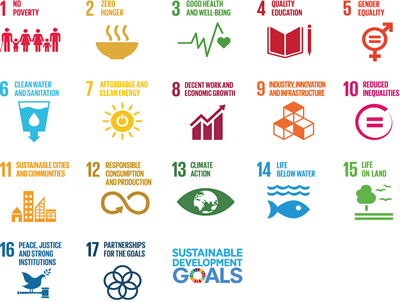Investor uneasiness particularly hit developing economies last year, with foreign direct investment flows dropping 14 percentage points even as their governments face a trillion-dollar investment deficit in basic infrastructure like roads, power stations and hospitals.
The risk is that without a massive foreign investment surge these countries will fall short of hundreds of targets set by the Sustainable Development Goals (SDGs).
"Such uncertainty is a major concern because this is a particular moment where confidence of investors, particularly cross-border investors, is critically important in bridging the financing gap for Agenda 2030," Dr. Kituyi said in reference to the estimated US$2.5 trillion in foreign investment that developing countries will need each year to achieve the SDGs.
Investor uncertainty stems in part from certain steps countries have taken to reform international investment agreements (IIAs) to try to strike a better balance between protecting investors and safeguarding a state's right to regulate.
While many governments continue to liberalize and promote foreign investment, some have taken a more critical stance to foreign takeovers as the need to reform global investment governance has entered mainstream policy discourse.
And some 130 countries have now used UNCTAD's roadmap for reform to devise a new generation of investment treaties more in line with sustainable development concerns.

- Multi-year Expert Meeting on Investment, Innovation and Entrepreneurship for Productive Capacity-building and Sustainable Development (9- 11 October)
But transforming the international investment regime, Dr. Kituyi said, requires countries to also review the legacy of the past -- the 2,500 or so investment treaties signed before 2010, which account for about 95 per cent of all IIAs in force.
"It is universally agreed now that the old stock of first generation investment agreements is not only outdated but unsustainable," Dr. Kituyi said. "And across the world, in different groups, everyone is owning up to the fact that we cannot put new wine into the old wineskins anymore."
First generation agreements, often 20 to 25 years old, typically contain broad definitions, substandard provisions and few safeguards, and are behind 90 per cent or so of the more than 800 known treaty-based investor-state dispute settlement cases.
Governments have numerous policy options at hand to modernize their stock of first generation IIAs, and this year's World Investment Report analyzes the pros and cons of 10 options, including terminating existing treaties.
Some 80 countries and regional groupings have reviewed or are reviewing their treaty networks, according to an UNCTAD preliminary survey, with at least 29 old-generation IIAs being terminated in the past two years.
"Some countries have made unilateral decisions, declaring sunset closures to existing treaties, and others have been coming up with newly concluded IIAs, which are more modern models reflecting more sustainability initiatives," Dr. Kituyi said.
"But while this progress is lauded, much more needs to be done," he said. "We are all aware that a global investment regime cannot be based on solo actions by individual countries alone."
UNCTAD's ultimate goal, Dr. Kituyi said, is a rules-based investment regime that is credible, has broad international support and aims at sustainability and inclusiveness.
"Such a rules-based system is what is needed to mobilize investment and channel it to the most needed areas for sustainable development goals," he said.
Dr. Kituyi was speaking at the opening of this year's multi-year expert meeting on investment, innovation and entrepreneurship for productive capacity-building and sustainable development, convening from 9 to 11 October 2017 at the Palais des Nations, the UN's European headquarters.


